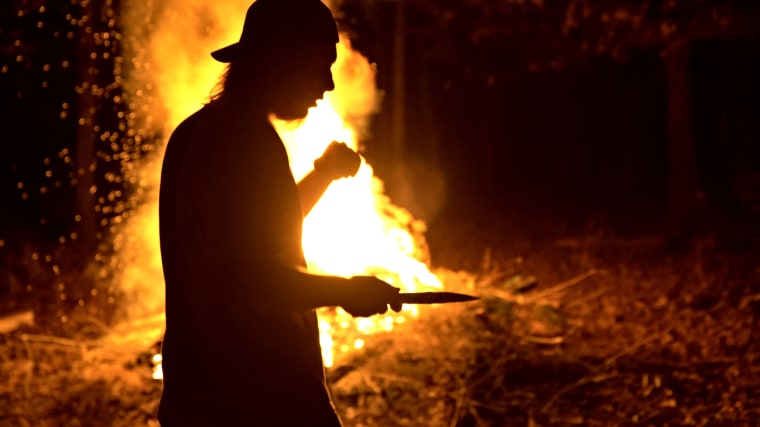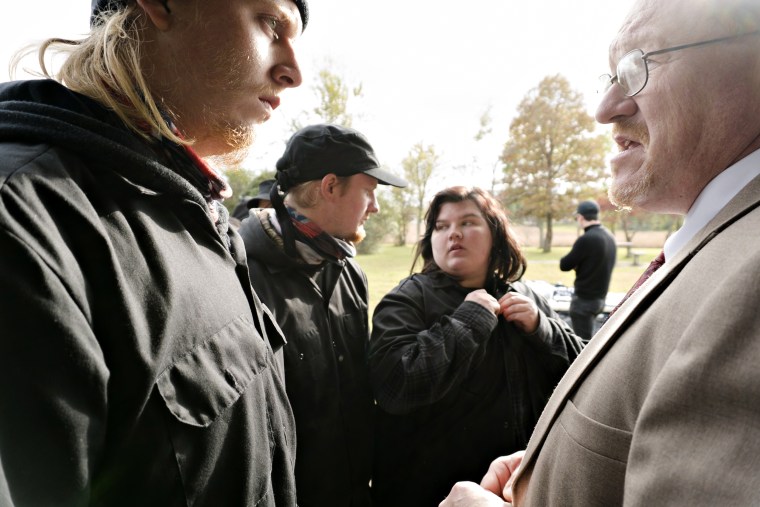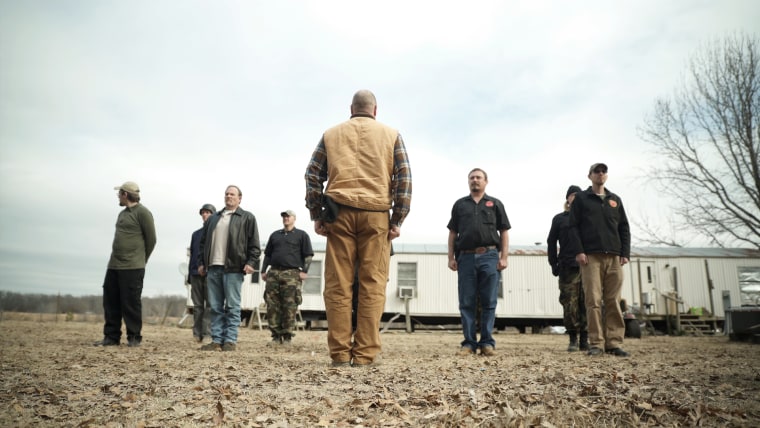The documentary below was originally intended as a report on the growth of white nationalist groups in the United States. It tells that story, but it also tells another one that I had not intended: the tale of the Goodwin family, and how it was transformed and instrumentalized by a white nationalist group.
Driving through rural Arkansas to make this film with David Scott Holloway, who has covered such groups in the U.S. for his entire career, I felt a deep hesitation. We were heading to the home of Tamera and Scott Goodwin, the parents of Jacob Goodwin, a self-proclaimed white nationalist, who was arrested a few weeks before for his alleged involvement in the beating of a black teenage counter-protester at the Unite the Right Rally in Charlottesville, Virginia on Aug. 12, 2017.
As my knock echoed in the Goodwin home, two peeling bumper stickers sat on a car just behind me: “White Genocide.” “White, Straight and Proud. How else may I offend you?”
In past assignments, I’ve been abducted in eastern Ukraine, dodged Israeli airstrikes in Gaza, and was interrogated by the secret police in Egypt. Every time I report in hostile environments, I put on emotional armor. And in a trailer home in Arkansas, I found myself doing the same.

There is a wide gap between casual racism and white supremacy. I wanted to be conscious not to connect them as if they are closer than they actually are. I wanted to push aside the racial slurs and off-hand remarks by Tamera in order to pry open and analyze the path that she was on.
Inside, Jacob’s parents — who appeared to have only loose political affiliations and beliefs — sat still, solemn and confused, as I asked about their son’s ties to white supremacist groups in the area.
As a Taiwanese-born Canadian, being non-white meant I could never be won over to their worldview, which was inherently incompatible with my very existence. This enabled me to sidestep any specific expectations of allegiance or opposition.
I found Tamera and Scott to be legitimately interested in learning more about me, where I came from, the things that I’ve seen, the places to which they would love to travel. We had long conversations about Taiwan and the Middle East, where I worked for most of my career.
Tamera brought me to a Hibachi grill, “food from y’all’s people,” as she put it. She said, “How could I be racist? I love your people’s food. And I love you to death.” I wasn’t sure whether to be offended or appreciative of Tamera’s attempt to find common ground.
Tamera was consistently worried about her son and would spend every opportunity in public speaking about Jacob. With Jacob’s arrest and the environment it created swirling around her, it didn’t feel like it would be a stretch for Tamera to buy into the ideology of the movement. But I don’t think she would have found her way there on her own.
It was the same warmth and openness Tamera showed me that enabled her to let in the ShieldWall Network and Billy Roper, whom the Southern Poverty Law Center lists as the “uncensored voice of violent neo-Nazism.”

To her, I felt, it was about belonging and surrounding herself with support for her son, baking cornbread and having them nearby to snap photos for Jacob.
But while Tamera was only on the cusp, Billy Roper was there to push her over the edge with radical ideologies.
He told me that he purposely says the most radically racist things so that even slightly toxic ideologies seem more reasonable. And after spending time with Billy Roper, in comparison, the Goodwins felt like moderates. They weren’t.
In fact, the last time I saw them, the Goodwins had hosted a white nationalist training march in their yard.
Viewers may argue that we’re just giving a platform to hate. But I needed to understand the fabric of the world that gives rise to this, here and now. I need to answer the deeper question of whether I could truly understand and empathize with Tamera, yet unflinchingly condemn her at the same time.
“Before you knew me, you thought I was a Neo Nazi mother,” she had said to me. “What am I now?”
